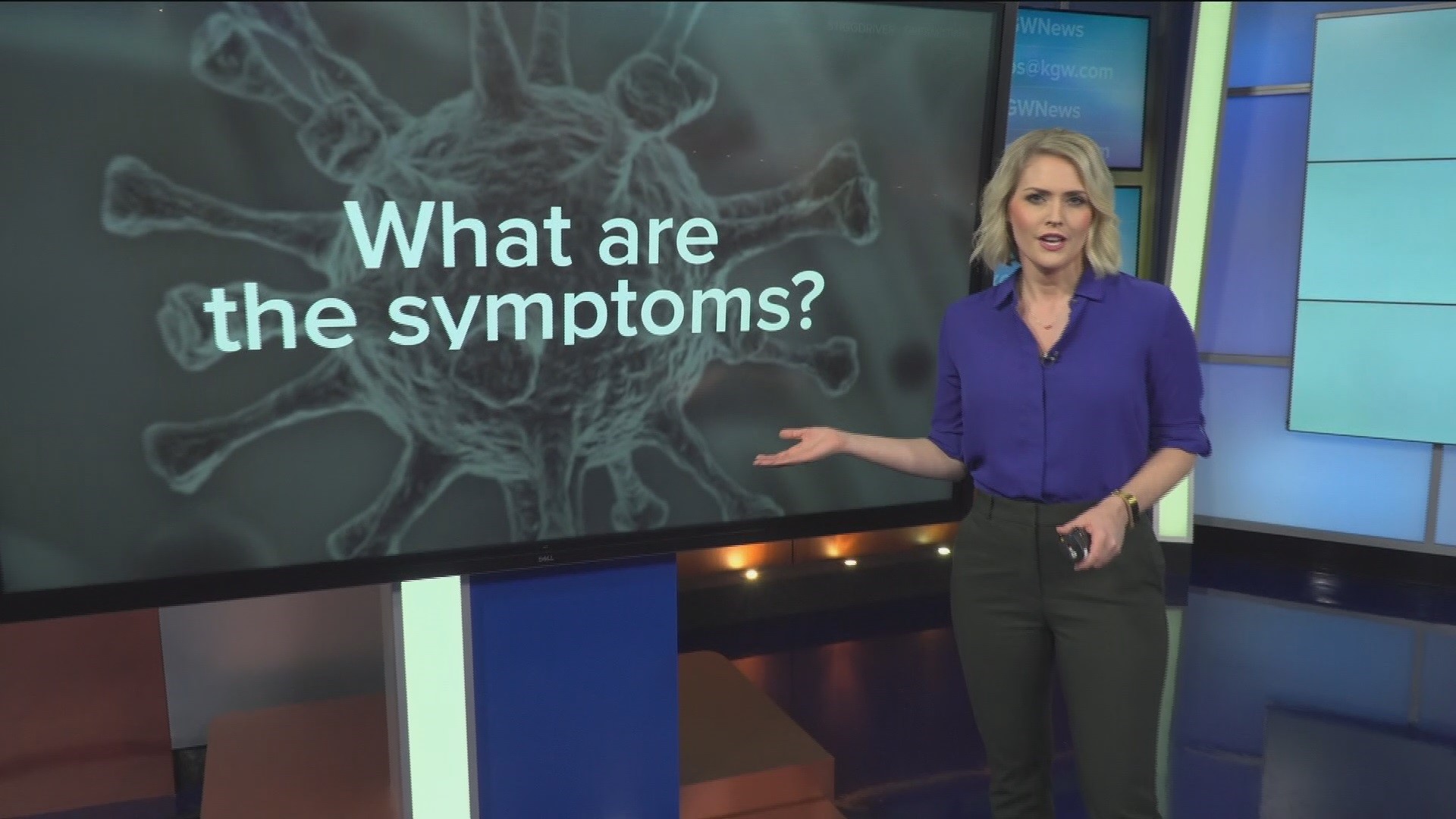PORTLAND, Ore. — Hundreds of people have texted KGW asking questions about the coronavirus. Our team is working hard to get you answers from the experts.
Here are answers to some of the most frequent questions we've seen so far:
Q: What are the symptoms of coronavirus?
A: Cough, fever, and shortness of breath. The Centers for Disease Control and Prevention says those symptoms may appear in as few as two days or as long as 14 days after exposure.
Q: How is COVID-19 spread? Can I get it from touching surfaces?
A: COVID-19 is spread person-to-person, mainly between people who are in close contact (within six feet of each other), according to the CDC. It may be possible for the virus to spread by touching a surface or object with the virus, but it's not thought to be the main method of transmission.
It is important to note, there is still a lot health officials are learning about the virus. It was only discovered a few months ago and more research is needed to determine a pattern of how COVID-19 is spread.
“With some of this recent information about the fact that the virus can potentially be infectious after several days – it does kind of raise some questions, but I don't think you need to rub every surface,” said infections disease specialist Dr. Christopher Cirino at Adventists Health.
Q: How can I protect myself and my family?
A: Because there is currently no vaccine for COVID-19, your best defense is prevention.
- Wash your hands regularly. The CDC recommends washing your hands for at least 20 seconds with soap and water. If you don't have soap, use a hand sanitizer with at least 60 percent alcohol.
- Avoid close contact with people who are sick.
- Avoid touching your eyes, nose, and mouth.
- Cover your cough or sneeze with a tissue.
- Clean and disinfect frequently touched objects and surfaces using a regular household cleaning spray or wipe.
Q: Who is at higher risk for getting coronavirus?
A: Most cases of coronavirus tend to be mild, according to Dr. Cirino. However, those with underlying health issues; chronic illness, those who are immunocompromised, and older adults may be at higher risk of a more severe illness.
“For the most part, people who don't have any other health problems are probably going to recover this just like having a common cold,” Dr. Cirino said.
To get the latest information on COVID-19 text FACTS to 503-226-5111.

